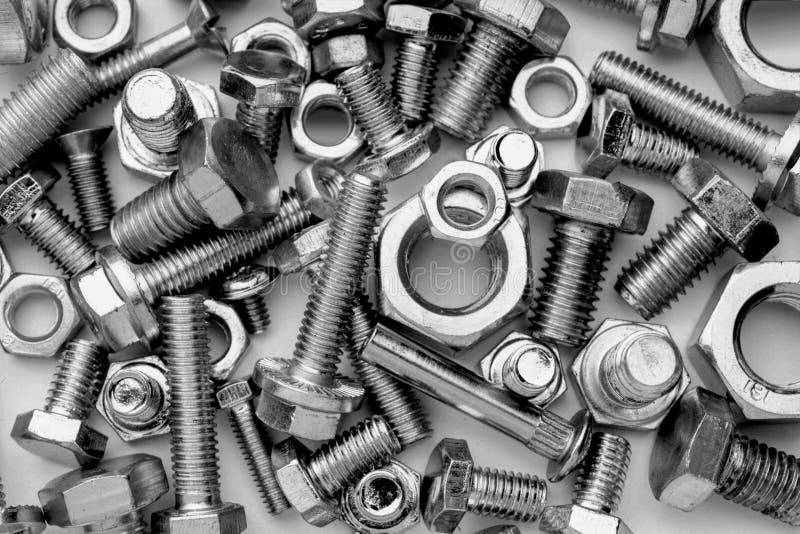In the world of DIY projects and home improvement, nuts and bolts are often the unsung heroes that bring everything together. Such essential fasteners come in various shapes, sizes, and materials, making them flexible components that can be used in numerous applications. Whether you're a seasoned builder or just beginning with DIY crafts, understanding the different types of nuts and bolts and their specific uses is crucial for choosing the right fastener for your project.
In this guide, explore everything you need to know about nuts and bolts, from the basics to more specialized types. You'll learn about the most common bolting options available, how to choose between the options, and what makes each type distinct. Through insights into their roles in heavy-duty construction, automotive repairs, and home improvement, this comprehensive overview aims to equip you with the knowledge to confidently tackle projects of any scale. Join us as we explore the fascinating world of nuts and bolts and discover how they can enhance your DIY experience.
Understanding Nuts and Nuts
Fasteners and bolts are essential components in the realm of mechanical connections, serving important roles in various applications, from building to automotive repairs. At their base, a fastener is a cylindrical fastener with a head at one end and threads along the body, designed to be employed with a nut. The nut is a six-sided or round piece with an internal thread that engages with the fastener, allowing for firm fastening when secured together. Understanding the varieties, uses, and specifications of nuts and nuts is crucial for any do-it-yourself enthusiast or professional builder.

The variety of nuts and nuts means they are customized for particular applications, offering multiple strengths, durability, and resistance to external factors. Common types include hex bolts, carriage fasteners, and lag bolts, each suited for different materials and loads. Likewise, fasteners come in various forms such as regular hex fasteners, security nuts, and wide-based fasteners, each designed to provide distinct advantages based on the project's needs. Understanding how to choose the suitable type ensures the longevity and safety of any project.
Additionally, grasping the substances and coatings used in nuts and nuts can profoundly affect performance and longevity. Choices such as stainless steel, brass, and titanium provide different strengths and corrosion resistance, making them appropriate for certain environments. For example, rust-resistant steel bolts offer superior resistance to rust, making them suitable for exterior use. By selecting the right type and material, DIYers can enhance their projects' structural integrity and ensure lasting outcomes.
Materials and Coatings
When choosing fasteners and screws for your projects, the substance they are made from plays a crucial role in their performance and durability. Steel is the most common material utilized, known for its durability and affordability. It is available in different grades, with carbon steel being popular for typical applications while high-strength steel is preferred for high-strength requirements. Copper and titanium are also employed, offering advantages like corrosion resistance and lightweight properties, which makes them suitable for specific applications in vehicle and aerospace industries.
Finishes significantly improve the effectiveness of nuts and bolts, especially in external environments where contact to moisture can lead to rusting. read this provides a protective layer that stops rust, while coated fasteners offer even greater protection because of their thicker zinc coating. Other options include powder coating and anodized finishes, which can add a aesthetic finish while providing further resistance to abrasion and corrosion, rendering them suitable for decorative uses in home improvement projects.
Understanding the variations between coatings is essential for ensuring lasting quality and reliability. For example, corrosion-resistant bolts may be worth the investment due to their built-in rust resistance, rendering them ideal for use in demanding environments. In comparison, if financial limitations exist, opting for zinc-coated bolts can provide sufficient protection for less demanding applications. Selecting the appropriate material and finish is essential for ensuring the effectiveness of your DIY projects.
Purchasing Guides and Contrasts
When choosing fasteners and bolts for your project, it is crucial to take into account the particular requirements based on the use. Factors such as strength, conditions of use, and compatibility of materials play important roles. For instance, if you're working on an exterior project, choosing for rust-resistant substances like stainless steel or galvanized fasteners is advisable. Understanding whether the fasteners are going to be applied for timber or metal uses will also guide your selection to ensure best performance.
Measuring fasteners and bolts correctly is vital to ensure a good fit. Use calipers or a tape measure to check the diameter, length, and thread pitch. When comparing different options, always refer to a fastener strength evaluation table that details the pull strength and breaking strength of different types. This helps in determining the best fastener that aligns with your project’s needs and safety regulations.
For a more educated buying decision, familiarizing yourself with the language used in fasteners is advantageous. A comprehensive glossary of nuts and bolts can help you in understanding the distinctions between different types. Additionally, think about whether you need specialty hardware for specific applications. By being knowledgeable about the variations between international and standard fasteners and knowing what to look for in quality items, you can reach a wise decision that ensures the success of your do-it-yourself endeavors.
